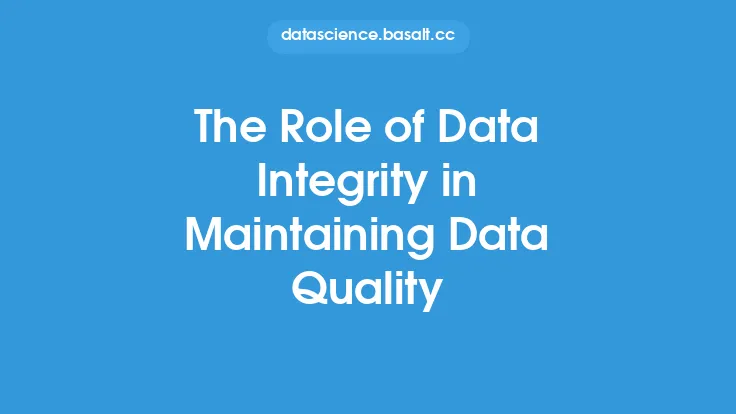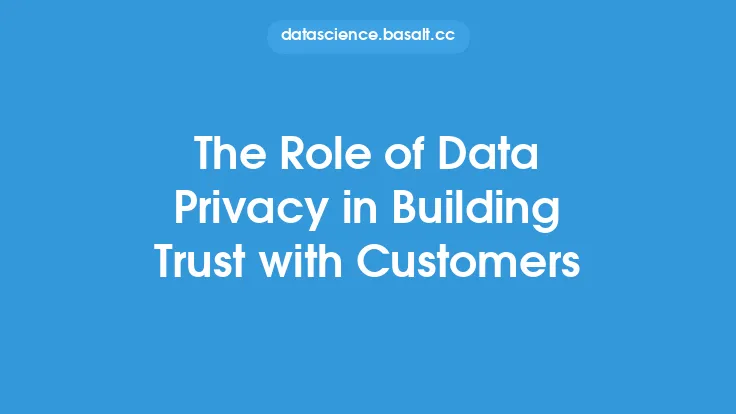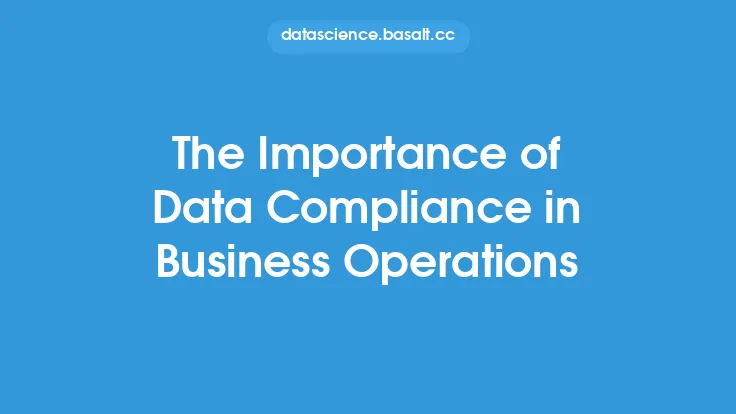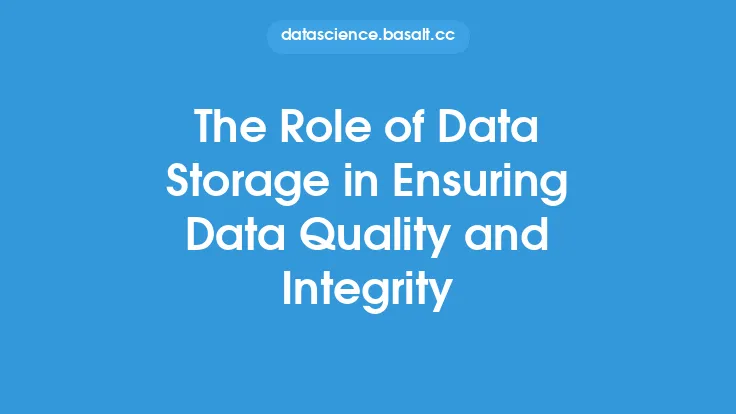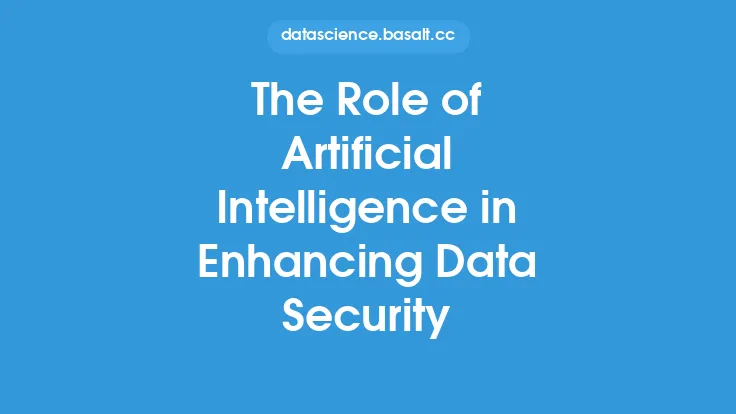In today's digital age, the collection, storage, and use of personal and sensitive data have become increasingly prevalent. As a result, maintaining public trust has become a critical concern for organizations that handle such data. Data compliance plays a vital role in ensuring that organizations handle data in a responsible and secure manner, thereby maintaining public trust. This is achieved through the implementation of robust data governance policies, procedures, and controls that ensure the confidentiality, integrity, and availability of data.
Introduction to Data Compliance
Data compliance refers to the process of ensuring that an organization's data handling practices comply with relevant laws, regulations, and standards. This includes ensuring that data is collected, stored, and used in a manner that is transparent, secure, and respectful of individuals' privacy. Data compliance is not just a legal requirement, but also a business imperative, as it helps to build trust with customers, employees, and other stakeholders. Organizations that fail to comply with data protection regulations risk facing significant fines, reputational damage, and loss of public trust.
The Importance of Public Trust
Public trust is essential for any organization that handles personal or sensitive data. When individuals provide their data to an organization, they expect it to be handled in a responsible and secure manner. If an organization fails to meet these expectations, it can lead to a loss of trust, which can have severe consequences, including reputational damage, financial losses, and regulatory action. Maintaining public trust requires organizations to be transparent about their data handling practices, to implement robust security controls, and to ensure that data is used in a manner that is consistent with the purposes for which it was collected.
Data Compliance and Transparency
Transparency is a critical component of data compliance. Organizations must be open and honest about their data handling practices, including how data is collected, stored, and used. This includes providing clear and concise information about data collection and use, as well as ensuring that individuals have access to their data and can correct any inaccuracies. Transparency also requires organizations to be open about data breaches and other security incidents, and to provide timely notification to affected individuals. By being transparent about their data handling practices, organizations can build trust with their customers and other stakeholders.
Data Compliance and Security
Security is another critical component of data compliance. Organizations must implement robust security controls to protect data from unauthorized access, use, or disclosure. This includes implementing technical controls, such as encryption and firewalls, as well as administrative controls, such as access controls and incident response plans. Organizations must also ensure that their security controls are regularly reviewed and updated to ensure that they remain effective. By implementing robust security controls, organizations can protect data from security threats and maintain public trust.
Data Compliance and Accountability
Accountability is a critical component of data compliance. Organizations must be able to demonstrate that they are accountable for their data handling practices, including how data is collected, stored, and used. This includes implementing policies and procedures that ensure data is handled in a responsible and secure manner, as well as ensuring that individuals have access to their data and can correct any inaccuracies. Accountability also requires organizations to be able to demonstrate that they have implemented robust security controls and that they are regularly reviewed and updated. By being accountable for their data handling practices, organizations can build trust with their customers and other stakeholders.
Technical Aspects of Data Compliance
From a technical perspective, data compliance requires organizations to implement a range of controls and technologies to ensure the confidentiality, integrity, and availability of data. This includes implementing data encryption, access controls, and incident response plans, as well as ensuring that data is stored and transmitted in a secure manner. Organizations must also ensure that their systems and applications are regularly updated and patched to prevent security vulnerabilities. Additionally, organizations must implement data loss prevention (DLP) technologies to prevent unauthorized data disclosure, as well as ensure that data is backed up and recoverable in the event of a disaster.
Best Practices for Maintaining Public Trust
To maintain public trust, organizations should implement the following best practices:
- Be transparent about data handling practices
- Implement robust security controls
- Ensure accountability for data handling practices
- Provide clear and concise information about data collection and use
- Ensure that individuals have access to their data and can correct any inaccuracies
- Implement data breach notification procedures
- Regularly review and update security controls and policies
- Provide training to employees on data handling practices and security controls
By implementing these best practices, organizations can maintain public trust and ensure that their data handling practices are responsible and secure.
Conclusion
In conclusion, data compliance plays a critical role in maintaining public trust. Organizations must implement robust data governance policies, procedures, and controls to ensure the confidentiality, integrity, and availability of data. This includes being transparent about data handling practices, implementing robust security controls, and ensuring accountability for data handling practices. By maintaining public trust, organizations can build strong relationships with their customers and other stakeholders, and ensure the long-term success of their business.
